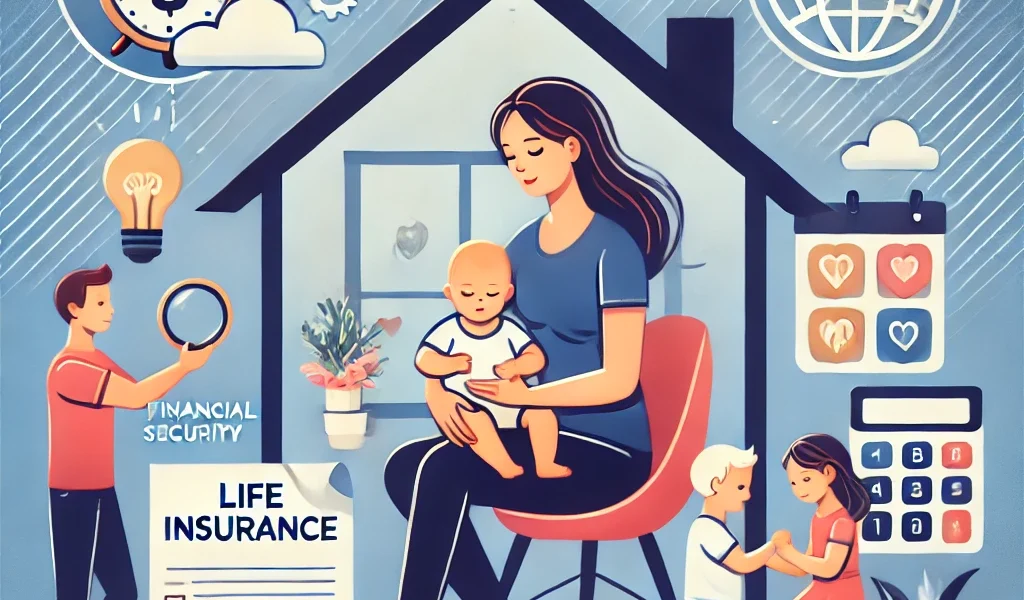Introduction
Many people mistakenly believe that life insurance is only necessary for the primary income earner in a household. However, stay-at-home parents play a critical role in managing the home, caring for children, and handling daily responsibilities that would be costly to replace. Life insurance for stay-at-home parents is just as important as it is for working professionals.
The Financial Value of a Stay-at-Home Parent
Although stay-at-home parents may not bring in a paycheck, the value they contribute to a household is immense. Consider these roles they fill:
- Childcare Provider: The average cost of daycare or a nanny can be thousands of dollars per year.
- Household Manager: Cooking, cleaning, grocery shopping, and running errands all contribute to the family’s daily well-being.
- Tutor and Emotional Support: Helping children with homework and providing emotional stability are invaluable contributions.
If something were to happen to a stay-at-home parent, the surviving spouse would have to hire help for these essential responsibilities. Life insurance ensures financial support to cover these costs.
How Life Insurance Can Help
Life insurance for stay-at-home parents offers several key benefits:
1. Covering Childcare Costs
Without a stay-at-home parent, childcare becomes one of the biggest expenses. A life insurance policy can help cover the cost of daycare, babysitters, or a nanny.
2. Household Maintenance
From meal preparation to housekeeping, replacing the services provided by a stay-at-home parent requires additional funds. Life insurance can help cover these expenses without straining the family’s finances.
3. Education and Future Planning
A payout from a life insurance policy can also be used to ensure children’s education costs are covered, securing their future even in the absence of one parent.
4. Debt and Mortgage Protection
If the family has outstanding loans or a mortgage, life insurance can prevent the financial burden from falling solely on the surviving spouse.
How Much Life Insurance Does a Stay-at-Home Parent Need?
Determining the right coverage amount depends on several factors:
- Number of Children – The younger they are, the longer they will need care.
- Household Expenses – Consider the cost of outsourcing household responsibilities.
- Future Education Costs – Factor in tuition fees and higher education planning.
- Debt and Mortgage Obligations – Ensure enough coverage to prevent financial hardship.
A general rule is to get coverage that can sustain the family’s lifestyle for at least 10-15 years.
Types of Life Insurance for Stay-at-Home Parents
1. Term Life Insurance
- Offers coverage for a specific period (e.g., 10, 20, or 30 years).
- More affordable option.
- Ideal for covering short-term expenses like childcare and education.
2. Whole Life Insurance
- Provides lifetime coverage.
- Builds cash value over time.
- More expensive but can serve as an investment vehicle.
Choosing the Right Policy
When selecting a life insurance policy, consider:
- Affordability: Ensure premiums fit within the family budget.
- Coverage Amount: Based on financial needs and future obligations.
- Insurance Provider: Compare policies from reputable companies for the best value.
Common Myths About Life Insurance for Stay-at-Home Parents
Myth 1: “Only the Breadwinner Needs Life Insurance”
- Reality: A stay-at-home parent’s contributions would be costly to replace.
Myth 2: “Life Insurance is Too Expensive”
- Reality: Term life insurance policies are very affordable and provide valuable protection.
Myth 3: “I Can Always Get Insurance Later”
- Reality: The earlier you purchase life insurance, the lower your premiums will be.
Conclusion
Life insurance is a crucial part of financial planning for all parents, including stay-at-home moms and dads. By securing a policy, families can ensure financial stability and peace of mind in case of unexpected loss. Protecting your loved ones is not just about income replacement—it’s about securing the future and maintaining the quality of life for your children and spouse.




